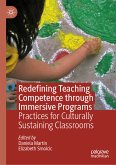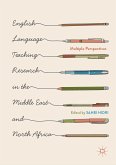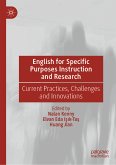"This edited book is a great addition to ELT research on feedback in L2 English writing in the Arab World. It is a must read for researchers investigating perceptions and practices of writing feedback."
Sabhi Hidri, Founder of Tunisia TESOL, Faculty of Human and Social Sciences, University of Tunis, Tunisia.
This edited book uses case studies to offer a comprehensive picture of the feedback practices and perceptions pertinent to English as a Foreign Language (EFL) writing in the Arab world. It highlights essential themes about feedback in L2 writing in eight Arab countries, and offers a detailed critical analysis of feedback practices and perceptions in six of these: Egypt, Morocco, Oman, Saudi Arabia, Tunisia and the United Arab Emirates. The book will appeal to an international readership of academics, researchers and practitioners interested in EFL writing in the Arab world.
Abdelhamid Ahmedis Assistant Professor of Education (Applied Linguistics/ TESOL) at Helwan University, Egypt.
Salah Troudi is Associate Professor of Education at the Graduate School of Education, University of Exeter, UK.
Susan Riley is Lecturer in TESOL at the Graduate School of Education, University of Exeter, UK.
Dieser Download kann aus rechtlichen Gründen nur mit Rechnungsadresse in A, B, BG, CY, CZ, D, DK, EW, E, FIN, F, GR, HR, H, IRL, I, LT, L, LR, M, NL, PL, P, R, S, SLO, SK ausgeliefert werden.









